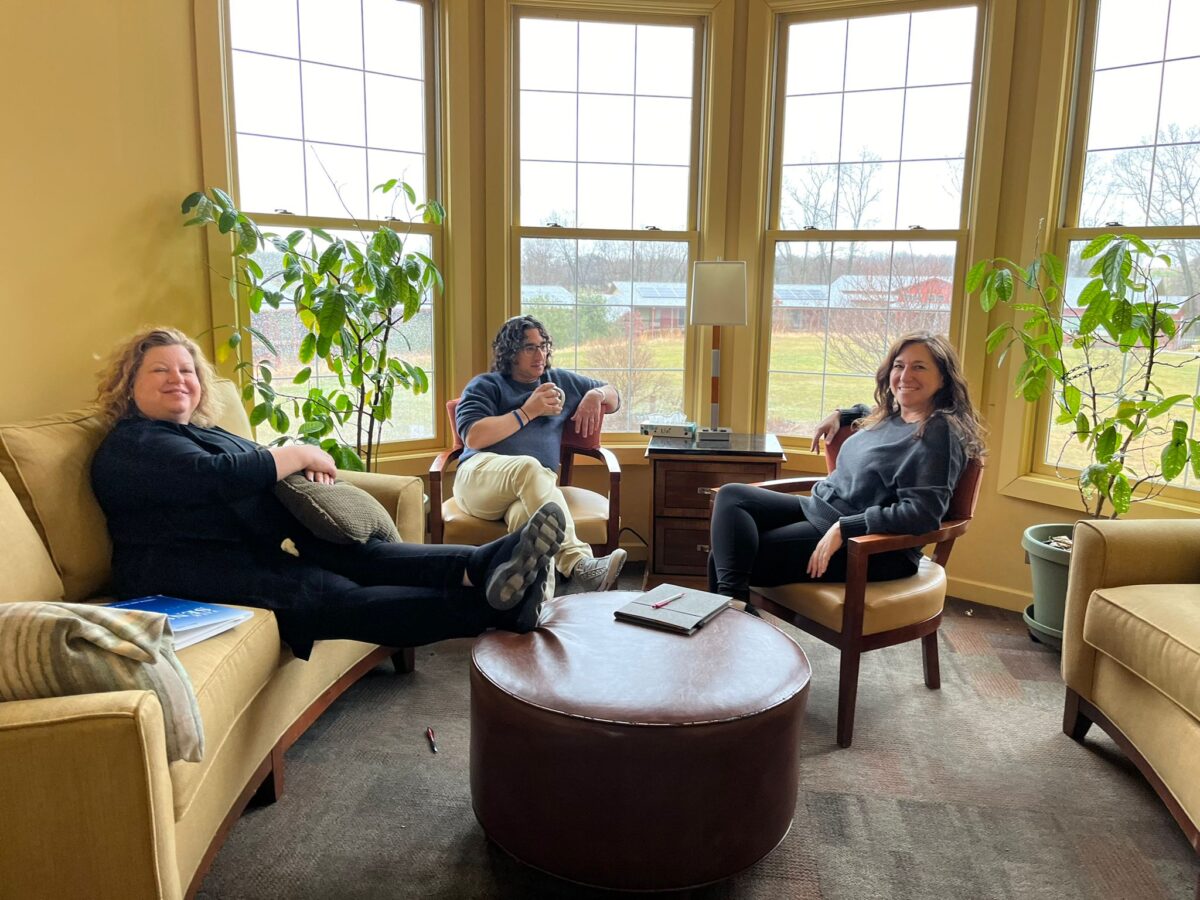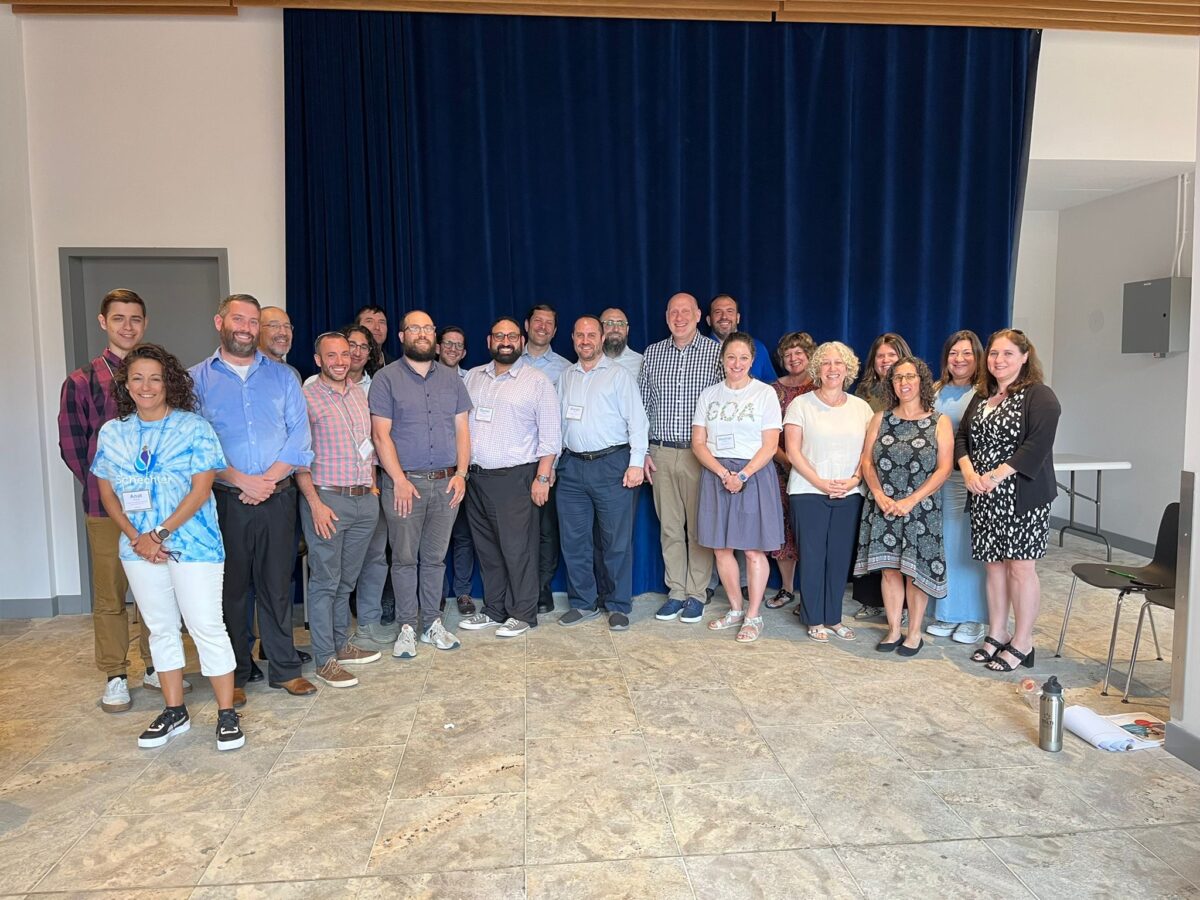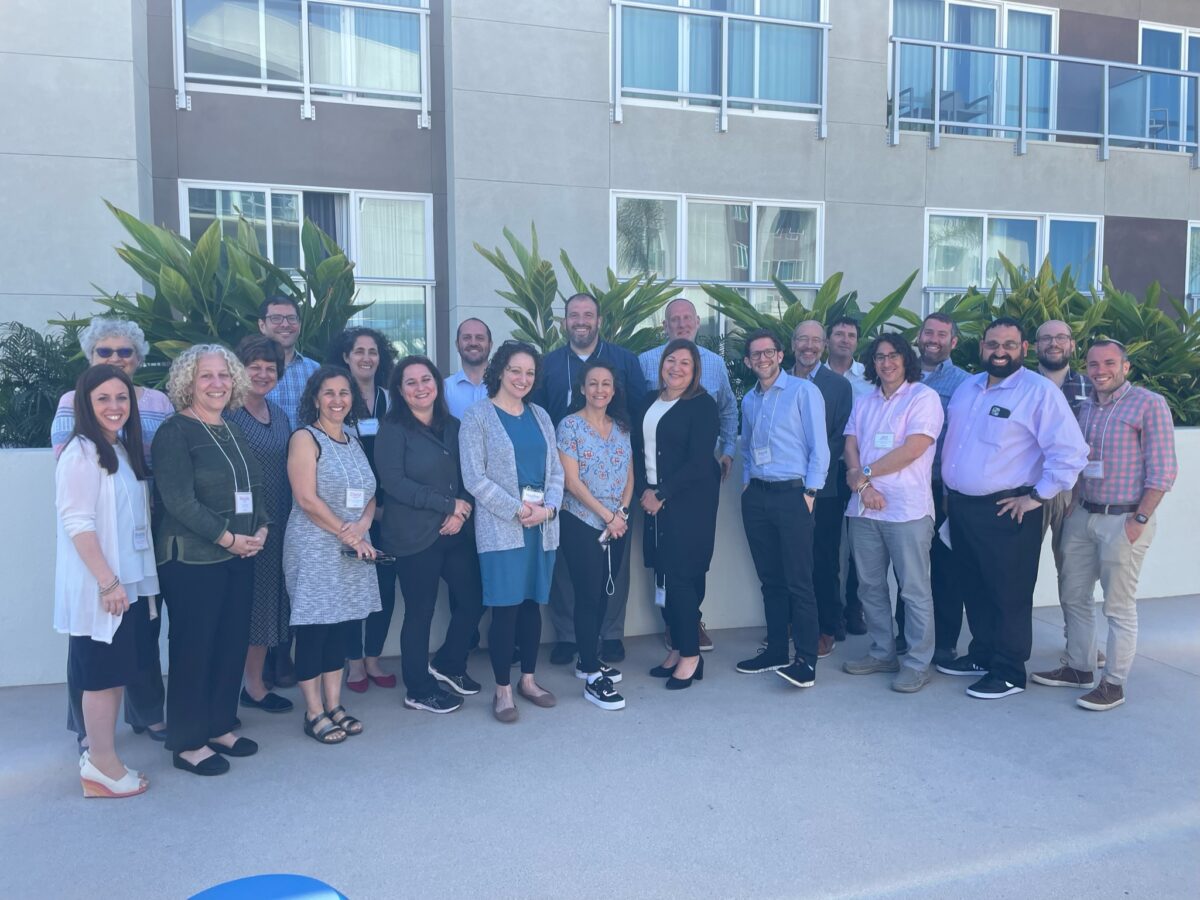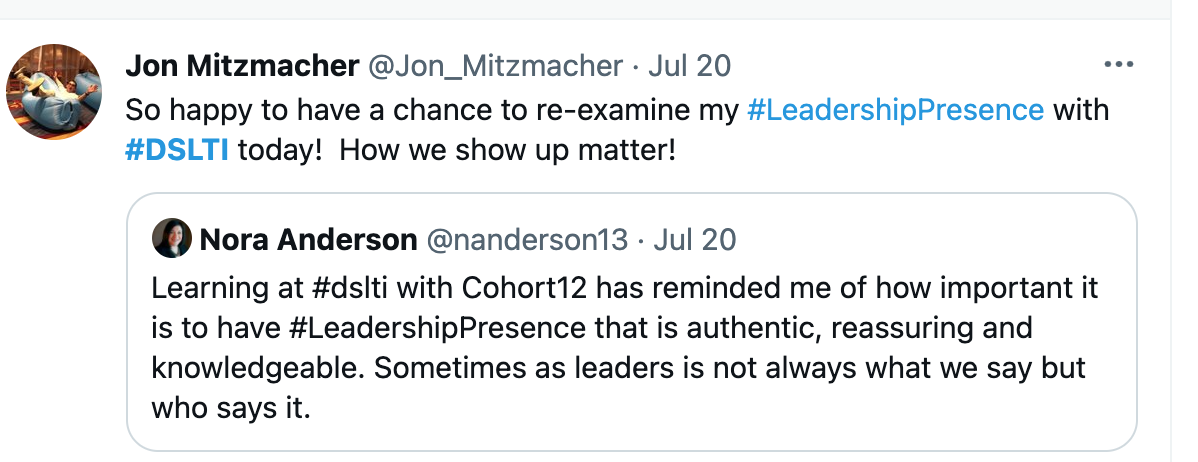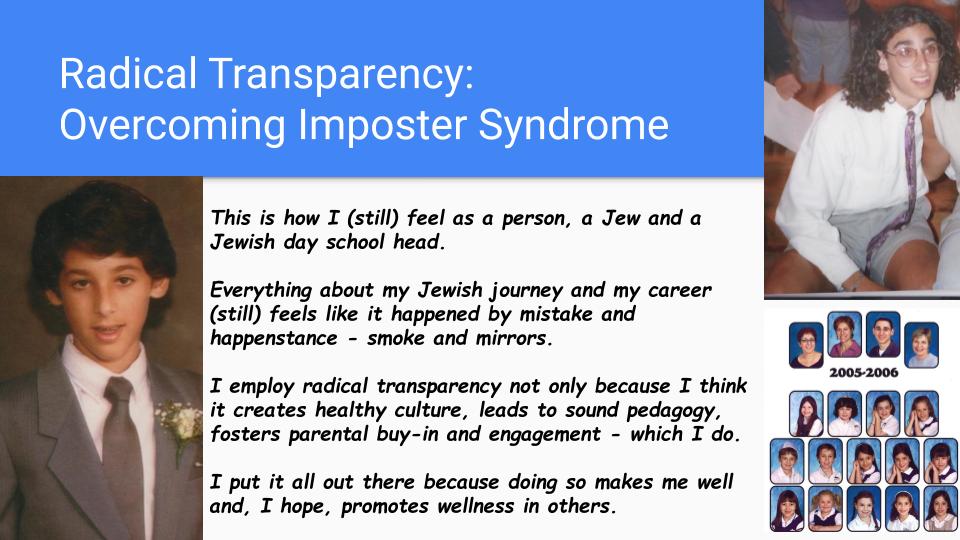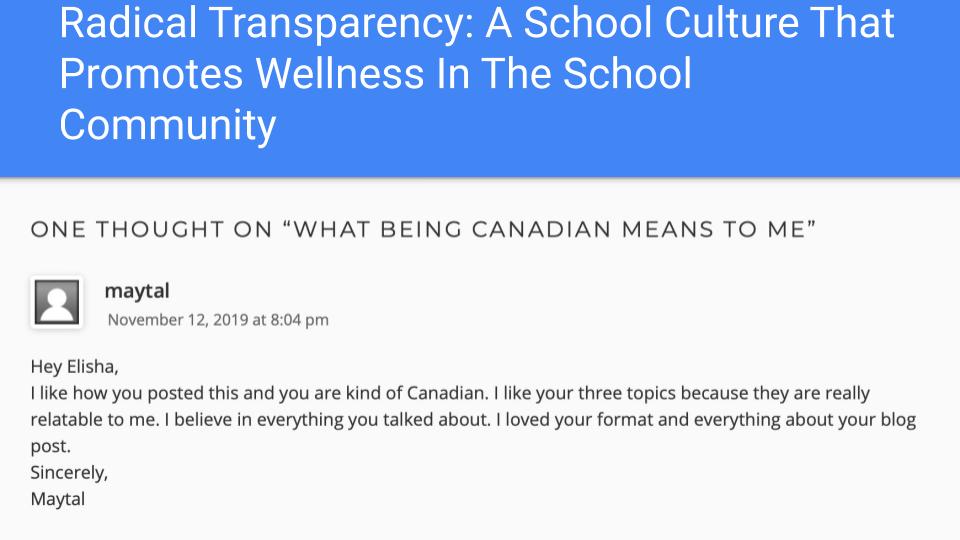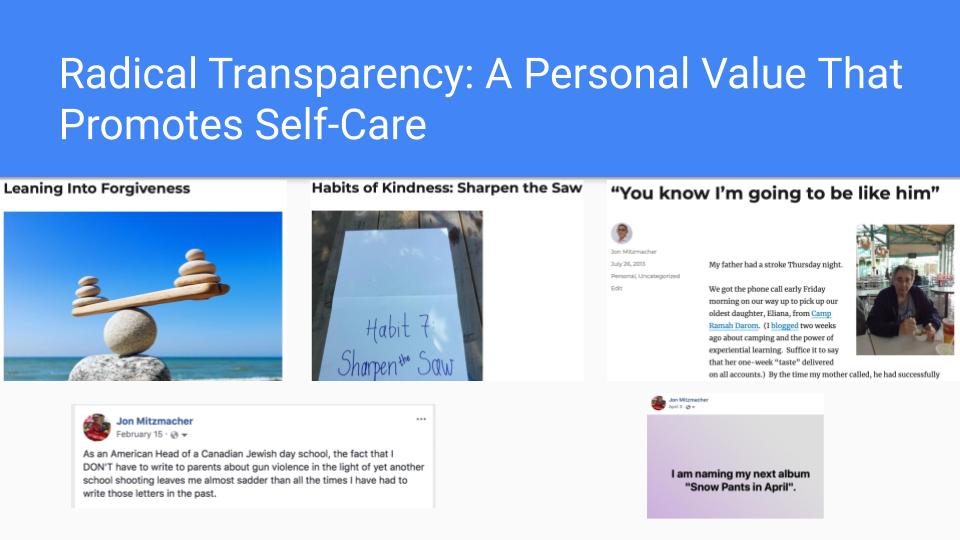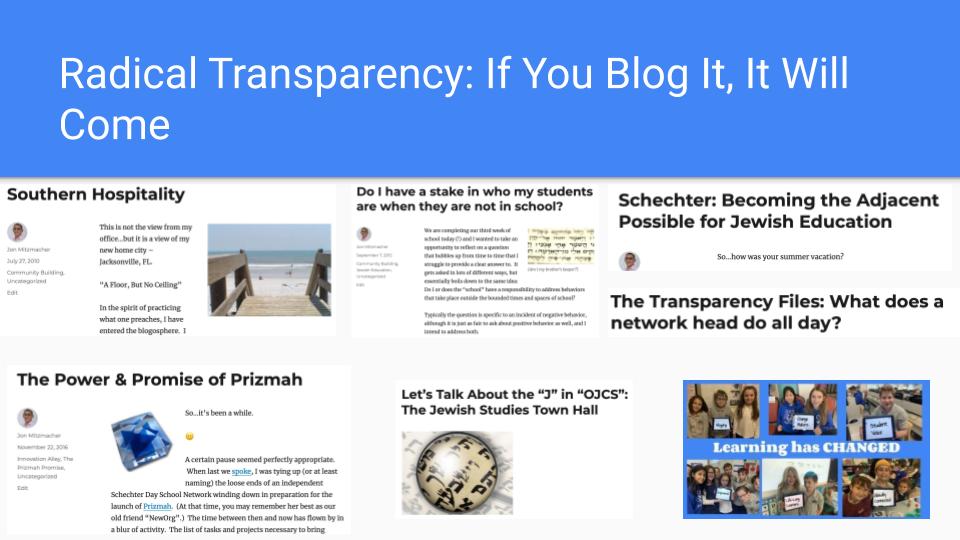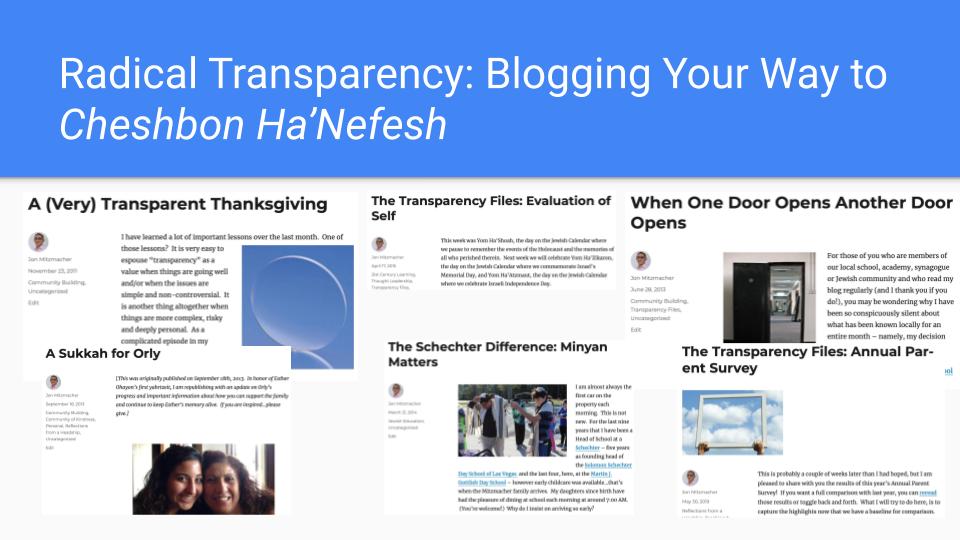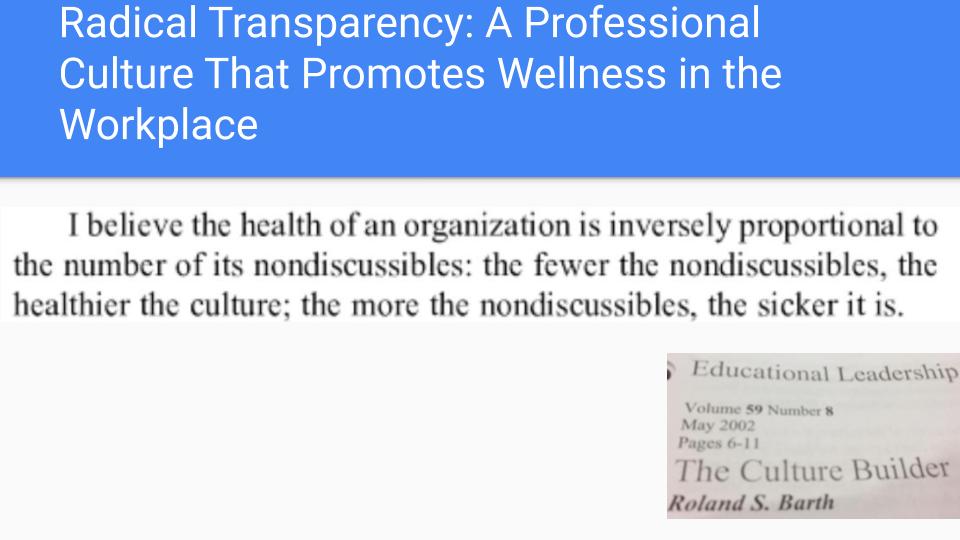In the bustling world of education, the role of a school leader is multifaceted. Beyond the daily operations and academic management, there lies an essential task: the continual growth and development of leadership capacity. Just as students benefit from ongoing learning and enrichment, school leaders too must invest time and effort into honing their skills and expanding their knowledge base. While this may occasionally necessitate their absence from the school, it is a valuable investment that ultimately enhances the school’s overall effectiveness and long-term success. So, while it may create temporary inconveniences, parents can rest assured that their school’s leader is actively working to strengthen the institution’s foundation for the benefit of every student and family.
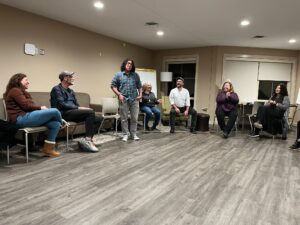 I had the opportunity this week to facilitate a Day School Leadership Training Institute (DSLTI) Retreat with the theme of “Conversations.” This retreat served as a valuable opportunity for me to enhance my leadership skills and gain insights into fostering meaningful dialogue within our school community. The topic of “Conversations” resonated deeply with me, especially the work we did on Radical Candor—a concept that emphasizes open, honest, and empathetic communication. Just as we strive to cultivate a culture of Radical Candor among our staff and faculty, we also recognize its significance in nurturing strong parent-school partnerships.
I had the opportunity this week to facilitate a Day School Leadership Training Institute (DSLTI) Retreat with the theme of “Conversations.” This retreat served as a valuable opportunity for me to enhance my leadership skills and gain insights into fostering meaningful dialogue within our school community. The topic of “Conversations” resonated deeply with me, especially the work we did on Radical Candor—a concept that emphasizes open, honest, and empathetic communication. Just as we strive to cultivate a culture of Radical Candor among our staff and faculty, we also recognize its significance in nurturing strong parent-school partnerships.
As we navigate another exciting admissions season at OJCS, I thought I would try to connect some dots through one of my favourite blogging formats…the good ol’ “Q& A”:
Q: What role does parent partnership play in enrollment retention at the Ottawa Jewish Community School?
A: Parent partnership is crucial for enrollment retention at our school. By fostering strong relationships between parents and educators, we try to create a supportive community where families feel valued and engaged. We hope this leads to higher and higher retention rates as parents are more likely to continue choosing our school for their children’s education.
Q: Can you explain the concept of Radical Candor and its relevance to parent partnership?
A: Radical Candor, as described by Kim Scott, emphasizes the importance of open, honest, and empathetic communication. In the context of parent partnership, this means creating opportunities for transparent dialogue between parents and faculty. By embracing Radical Candor principles, we can strengthen our relationships with parents and enhance their trust in the school community.
Q: How does the Ottawa Jewish Community School implement parent partnership strategies?
A: We implement various parent partnership strategies, including Goal-Setting Conferences, Parent-Teacher Conferences, a PTA, opportunities to volunteers, Town Halls, blogs and blogfolios, “office hours”, open doors and – when necessary – even exit interviews are a reflection of partnership. These initiatives provide opportunities for parents to voice their opinions, share feedback, and actively participate in decision-making processes. By involving parents in these initiatives, we demonstrate our commitment to partnership and collaboration, which ultimately contributes to enrollment retention.
Q: What are some benefits of parent partnership for both the school and the parents?
A: Parent partnership offers numerous benefits for both the school and the parents. For the school, it leads to higher retention rates, improved parent satisfaction, and a stronger sense of community. For parents, it provides opportunities to be actively involved in their children’s education, build relationships with teachers and staff, and contribute to the school’s growth and success.
Q: Can you provide an example of how Radical Candor principles are applied in, say, parent-teacher conferences?
A: During parent-teacher conferences, we encourage open and honest communication between parents and faculty. Teachers provide feedback on students’ progress, challenges, and areas for improvement, while parents have the opportunity to share their insights and concerns. By embracing Radical Candor principles, we create a supportive environment where both parties feel heard, valued, and empowered to work together towards the best interests of the child.
Q: How does the Ottawa Jewish Community School ensure continuous improvement in parent partnership efforts?
A: We are committed to continuous improvement in our parent partnership efforts. This includes seeking feedback from parents through surveys, conducting regular evaluations of our initiatives, and actively listening to concerns and suggestions from the community. By staying responsive to the needs and preferences of our parents, we can adapt and refine our parent partnership strategies to better serve our school community.
Q: In what ways does the school demonstrate its commitment to learning and improvement, even when faced with challenges?
A: As stated, the Ottawa Jewish Community School conducts exit interviews as part of its commitment to learning and improvement. These interviews provide valuable insights into the reasons behind a family’s decision to leave the school. By listening to parents’ feedback, whether positive or negative, and taking actionable steps to address any concerns, the school demonstrates its dedication to continuous growth and enhancement of the educational experience.
As the calendar continues to steamroll forward, I want to extend my heartfelt gratitude to the many parents who have re-enrolled their children at the Ottawa Jewish Community School. Your continued support and partnership are invaluable to us, and we are grateful for the opportunity to work together in shaping the future of our students. For those families who have not yet made the decision to re-enroll, I invite you to engage in open dialogue with us. Let’s have conversations that inspire growth, foster collaboration, and strengthen our bonds as a community. Together, we can achieve extraordinary things and create a learning environment where every child thrives.

